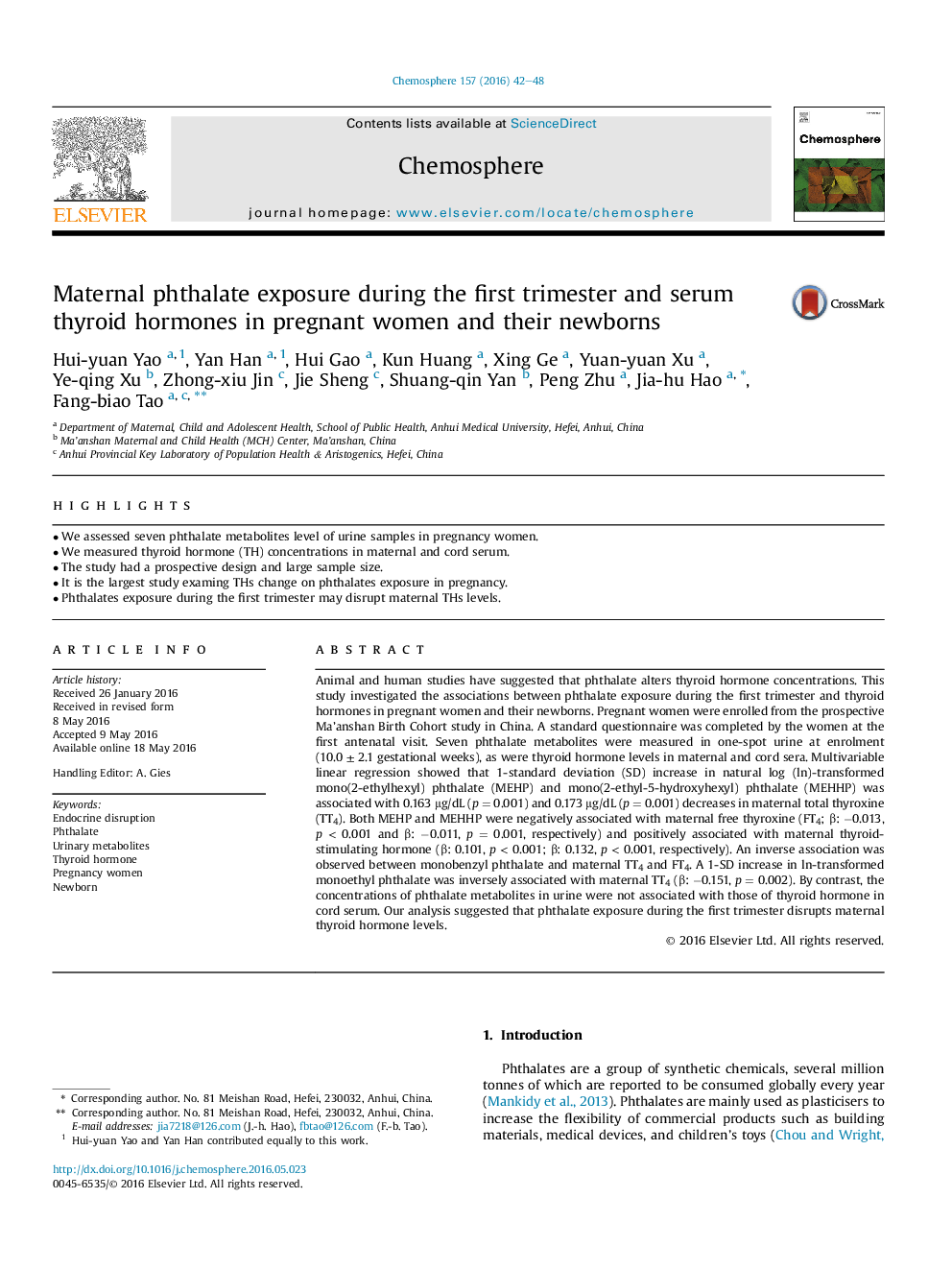| Article ID | Journal | Published Year | Pages | File Type |
|---|---|---|---|---|
| 4407592 | Chemosphere | 2016 | 7 Pages |
•We assessed seven phthalate metabolites level of urine samples in pregnancy women.•We measured thyroid hormone (TH) concentrations in maternal and cord serum.•The study had a prospective design and large sample size.•It is the largest study examing THs change on phthalates exposure in pregnancy.•Phthalates exposure during the first trimester may disrupt maternal THs levels.
Animal and human studies have suggested that phthalate alters thyroid hormone concentrations. This study investigated the associations between phthalate exposure during the first trimester and thyroid hormones in pregnant women and their newborns. Pregnant women were enrolled from the prospective Ma’anshan Birth Cohort study in China. A standard questionnaire was completed by the women at the first antenatal visit. Seven phthalate metabolites were measured in one-spot urine at enrolment (10.0 ± 2.1 gestational weeks), as were thyroid hormone levels in maternal and cord sera. Multivariable linear regression showed that 1-standard deviation (SD) increase in natural log (ln)-transformed mono(2-ethylhexyl) phthalate (MEHP) and mono(2-ethyl-5-hydroxyhexyl) phthalate (MEHHP) was associated with 0.163 μg/dL (p = 0.001) and 0.173 μg/dL (p = 0.001) decreases in maternal total thyroxine (TT4). Both MEHP and MEHHP were negatively associated with maternal free thyroxine (FT4; β: −0.013, p < 0.001 and β: −0.011, p = 0.001, respectively) and positively associated with maternal thyroid-stimulating hormone (β: 0.101, p < 0.001; β: 0.132, p < 0.001, respectively). An inverse association was observed between monobenzyl phthalate and maternal TT4 and FT4. A 1-SD increase in ln-transformed monoethyl phthalate was inversely associated with maternal TT4 (β: −0.151, p = 0.002). By contrast, the concentrations of phthalate metabolites in urine were not associated with those of thyroid hormone in cord serum. Our analysis suggested that phthalate exposure during the first trimester disrupts maternal thyroid hormone levels.
